Bonnie and Clyde is a 1967 American biographical crime film directed by Arthur Penn and starring Warren Beatty and Faye Dunaway as the title characters Clyde Barrow and Bonnie Parker. The film features Michael J. Pollard, Gene Hackman, and Estelle Parsons, with Denver Pyle, Dub Taylor, Gene Wilder (first film role), Evans Evans, and Mabel Cavitt in supporting roles. The screenplay was written by David Newman and Robert Benton. Robert Towne and Beatty provided uncredited contributions to the script; Beatty also produced the film. The soundtrack was composed by Charles Strouse.
| Bonnie and Clyde | |
|---|---|
Theatrical release poster by Bill Gold | |
| Directed by | Arthur Penn |
| Produced by | Warren Beatty |
| Written by |
|
| Starring |
|
| Music by | Charles Strouse |
| Cinematography | Burnett Guffey |
| Edited by | Dede Allen |
| Distributed by | Warner Bros.-Seven Arts |
Release date |
|
Running time | 111 minutes |
| Country | United States |
| Language | English |
| Budget | $2.5 million |
| Box office | $70 million |
Bonnie and Clyde is considered a landmark film, and is regarded as one of the first films of the New Hollywood era, since it broke many cinematic taboos and was popular with the younger generation. For some members of the counterculture, the film was considered to be a "rallying cry." Its success prompted other filmmakers to be more open in presenting sex and violence in their films. The film's ending also became iconic as "one of the bloodiest death scenes in cinematic history."
The film received Academy Awards for Best Supporting Actress (Estelle Parsons) and Best Cinematography (Burnett Guffey). It was among the first 100 films selected for preservation in the United States National Film Registry.
Screenplay
In the middle of the Great Depression, Clyde Barrow (Warren Beatty) and Bonnie Parker (Faye Dunaway) meet when Clyde tries to steal Bonnie's mother's car. Bonnie, who is bored by her job as a waitress, is intrigued by Clyde, and decides to take up with him and become his partner in crime. They pull off some holdups, but their amateur efforts, while exciting, are not very lucrative.
The duo's crime spree shifts into high gear once they hook up with a dim-witted gas station attendant, C.W. Moss (Michael J. Pollard), then with Clyde's older brother Buck (Gene Hackman) and his wife, Blanche (Estelle Parsons), a preacher's daughter. The women dislike each other on first sight, and their feud only escalates from there: shrill Blanche has nothing but disdain for Bonnie, Clyde and C.W., while gun-moll Bonnie sees Blanche's flighty presence as a constant danger to the gang's well-being.
Bonnie and Clyde turn from pulling small-time heists to robbing banks. Their exploits also become more violent. When C.W. botches a bank robbery by parallel parking the getaway car, Clyde shoots the bank manager in the face after he jumps onto the slow-moving car's running board. The gang is pursued by law enforcement, including Texas Ranger Frank Hamer (Denver Pyle), whom they capture and humiliate before setting him free. A raid later catches the outlaws off guard, mortally wounding Buck with a gruesome shot to his head and injuring Blanche. Bonnie, Clyde and C.W. barely escape with their lives. With Blanche sightless and in police custody, Hamer tricks her into revealing C.W.'s name, who was up until now still only an "unidentified suspect."
Hamer locates Bonnie, Clyde and C.W. hiding at the house of C.W.'s father Ivan Moss (Dub Taylor), who thinks the couple—and an ornate tattoo—have corrupted his son. The elder Moss strikes a bargain with Hamer: in exchange for leniency for the boy, he helps set a trap for the outlaws. When Bonnie and Clyde stop on the side of the road to help Mr. Moss fix a flat tire, the police in the bushes open fire and riddle them with bullets. Hamer and his posse then come out of hiding, looking pensively at the couple's bodies.
- Warren Beatty as Clyde Barrow
- Faye Dunaway as Bonnie Parker
- Michael J. Pollard as C.W. Moss
- Gene Hackman as Buck Barrow
- Estelle Parsons as Blanche Barrow
- Denver Pyle as Frank Hamer
- Dub Taylor as Ivan Moss
- Gene Wilder as Eugene Grizzard
- Evans Evans as Velma Davis
- Mabel Cavitt as Bonnie's mother (uncredited)
Cast notes
Actor Gene Wilder in his film debut portrayed Eugene Grizzard, one of Bonnie and Clyde's hostages. His girlfriend Velma Davis was played by Evans Evans, who was the wife of film director John Frankenheimer.
The family gathering scene was filmed in Red Oak, Texas. Several local residents gathered to watch the film being shot. When the filmmakers noticed Mabel Cavitt, a local school teacher, among the people gathered, she was cast as Bonnie Parker's mother.
The film was intended as a romantic and comic version of the violent gangster films of the 1930s, updated with modern filmmaking techniques. Arthur Penn portrayed some of the violent scenes with a comic tone, sometimes reminiscent of Keystone Kops-style slapstick films, then shifted disconcertingly into horrific and graphic violence. The film was strongly influenced by the French New Wave directors, both in its rapid shifts of tone, and in its choppy editing, which is particularly noticeable in the film's closing sequence. The first handling of the script was in the early 1960s. Very influenced by the French New Wave writers and in a state not yet completed, it was first sent by its writers David Newman and Robert Benton to Arthur Penn. He was already engaged in the first decisions of production for the 1966 film The Chase and could not further involve himself at that point. The writers then sent to François Truffaut, renowned director of the New Wave movement, who made contributions to the script. He passed on the project and went on to make Fahrenheit 451. At Truffaut's suggestion, the writers, much excited (the film's then-producers less so), approached Jean-Luc Godard. Some sources claim Godard didn't trust Hollywood and refused; Robert Benton claimed that Godard wanted to shoot the film in New Jersey in January during the winter and took offense when would-be producer Norah Wright objected that that was unreasonable considering the story took place in Texas with its year-round warm environment. Her partner Elinor Jones claimed they did not believe Godard was right for the project in the first place. Godard's retort: « Je vous parle de cinéma, vous me parlez de météo. Au revoir. » ("I'm talking cinema and you're talking weather. Goodbye.") After the 1968 Academy Awards, Godard sent Benton and Newman a cable that read, "Now, let's make it all over again!"
Soon after the failed negotiations for production, Warren Beatty was visiting Paris and learned through Truffaut of the project and its perambulations. On returning to Hollywood, Beatty requested the script and bought the rights. A meeting with Godard was not productive. Beatty then changed compass and convinced the writers that while the script at first reading was very much of the French New Wave style, an American director was necessary for the subject.
Beatty offered the position to George Stevens, William Wyler, Karel Reisz, John Schlesinger, Brian G. Hutton, and Sydney Pollack, all of whom turned down the opportunity. Arthur Penn actually turned down the director's position again further times before Beatty finally convinced him to helm the film.
When Warren Beatty was on board as producer only, his sister Shirley MacLaine was a strong possibility to play Bonnie, but when Beatty decided to play Clyde, obviously a different actress was needed. Those considered for the role were Jane Fonda, Tuesday Weld, Ann-Margret, Leslie Caron, Carol Lynley and Sue Lyon. Cher auditioned for the part, while Warren Beatty begged Natalie Wood to play the role. Wood declined the role to concentrate more on her therapy at the time, and acknowledged that working with Beatty before was "difficult." Faye Dunaway stated that she won the part "by the skin of her teeth!"
The film is forthright in its handling of sexuality, but that theme was toned down from its conception. Originally, Benton and Newman wrote Clyde as bisexual and he and Bonnie were to have a three-way sexual relationship with their male getaway driver. However, Arthur Penn persuaded the writers that since the relationship's emotional complexity was underwritten, it dissipated the passion of the title characters and it would harm the audience's sympathy for the characters who would write them off as sexual deviants because they were criminals. Others claimed that Beatty was not willing to have his character display that kind of sexuality and that the Production Code would never have allowed such content in the first place. Instead, Clyde is portrayed as unambiguously heterosexual, if impotent. When Clyde brandishes his gun to display his manhood, Bonnie suggestively strokes the phallic symbol. Like the 1950 film Gun Crazy, Bonnie and Clyde portrays crime as alluring and intertwined with sex. Because Clyde is impotent, his attempts to physically woo Bonnie are frustrating and anti-climactic.
Bonnie and Clyde was one of the first films to feature extensive use of squibs – small explosive charges, often mounted with bags of stage blood, that are detonated inside an actor's clothes to simulate bullet hits. Released in an era where shootings were generally depicted as bloodless and painless, the Bonnie and Clyde death scene was one of the first in mainstream American cinema to be depicted with graphic realism.
Beatty had originally wanted the film to be shot in black and white, but Warner Bros. rejected this idea. As it stood, much of the senior management of the studio was hostile to this film project, especially Jack L. Warner who considered the subject-matter an unwanted throwback to Warner Bros.' early period when gangster films were common product. In addition, Warner was already annoyed at Beatty who refused to star in the film, PT 109 at his behest and was insolent enough to defy his favorite gesture of authority of showing the studio water tower with the WB logo on it by responding "Well, it's got your name, but it's got my initials." In addition, Warner complained about the film's extensive location shooting in Texas which exceeded its production schedule and budget, until he ordered the crew back to the studio backlot, where it was planned to be anyway for final process shots.
At first, Warner Bros. did not promote Bonnie and Clyde for general release, but instead mounted only limited regional releases that seemed to confirm its misgivings about the film's lack of commercial appeal, despite the fact the film was doing excellent sustained business in select urban theatres. In fact, while Jack Warner was selling the studio to Seven Arts Productions, he would have had the film dumped but for the fact that Israel, of which Warner was a major supporter, had scored a triumphant victory in the Six-Day War, and he was in too defiant a mood to sell any of his studio's films. Meanwhile, Warren Beatty, Bonnie and Clyde's producer and star, complained to Warner Bros. that if the company was willing to go to so much trouble for Reflections in a Golden Eye (they had changed the coloration scheme at considerable expense), their neglect of his film, which was getting excellent press, suggested a conflict of interest; he threatened to sue the company. Warner Bros. gave Beatty's film a general release. Much to Warner Bros.' management surprise, the film eventually became a major box office success.
Music
The instrumental banjo piece "Foggy Mountain Breakdown" by Flatt and Scruggs was introduced to a worldwide audience as a result of its frequent use in the movie. Its use is strictly anachronistic as the bluegrass-style of music dates from the mid-1940s rather than the 1930s, but the functionally similar Old-time music genre was long established and widely recorded at the period in which the film is set. Long out of print in vinyl and cassette formats, the film soundtrack album was finally released on CD in 2009.

Request Movie Now
Watch movie Bonnie And Clyde Film online on Amazon
Watch movie Bonnie And Clyde Film online
Watch The Movie On PrimeThe Train Full HD Movie Download
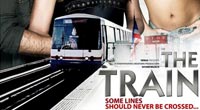
Vachanam Full HD Movie Download
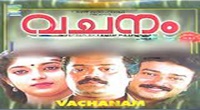
Aitbaar (1985) Full HD Movie Download
.jpg)
Maa Aur Mamta Full HD Movie Download
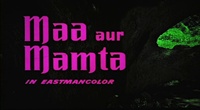
Ghamandee Full HD Movie Download

Iqbal Full HD Movie Download

Bengal Tiger Full HD Movie Download
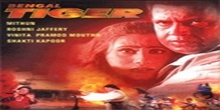
Ek Jaan Hai Hum Full HD Movie Download
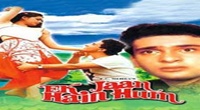
Lalchee Full HD Movie Download
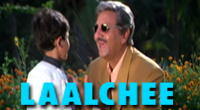
Beti (1969) Full HD Movie Download
.jpg)
Do Thug (1975) Full HD Movie Download
.jpg)
Jai Maa Vaishnav Devi Full HD Movie Download
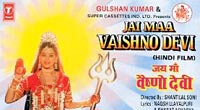
Rakshak: The Protector Full HD Movie Download
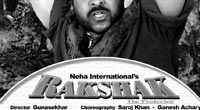
Shaheed (1948) Full HD Movie Download
.jpg)
Sakkanodu Full HD Movie Download
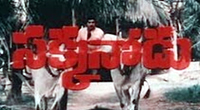
Kathiki Kankanam Full HD Movie Download
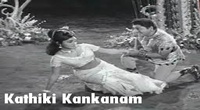
Mulla Nasaruddin Full HD Movie Download
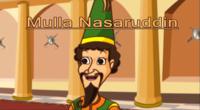
Kokila Full HD Movie Download
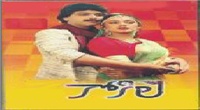
Priyaragalu Full HD Movie Download
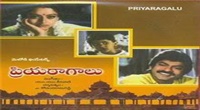
Yuddha Bhumi Full HD Movie Download

Japanil Kalyanaraman Full HD Movie Download
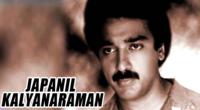
Download latest Movie from bollywood
- 1> baaghi 3
- 2> THE SKY IS PINK MOVIE FULL STORY AND REVIEW
- 3> Luka Chuppi
- 4> TO ALL THE BOYS I’VE LOVED BEFORE
- 5> Kabir Singh
- 6> Street Dancer 3D
- 7> Simmba
- 8> Gone Girl
- 9> The Girl Who Lived
- 10> Ludo
- 11> DILWALE DULHANIA LE JAYENGE
- 12> GUILTY
- 13> The Godfather
- 14> Adventures of Rusty
- 15> Sooryavanshi
- 16> Satyameva Jayate 2
- 17> Thappad
- 18> Bhool Bhulaiyaa 2
- 19> KGFChapter 2
- 20> Mardaani 2
- 21> Pinjar
- 22> Shivaji maharaj
- 23> Ek Villian 2
- 24> Hungama 2
- 25> Divergent
- 26> Mumbai Saga
- 27> The Internship
- 28> HIT (telugu)
- 29> Panga
- 30> The perfect date
- 31> 16 December
- 32> Gopala Gopala (Telugu)
- 33> Brahmastra
- 34> Gangubai Kathiawadi
- 35> Manmadhudu
- 36> Nenu local
- 37> Mahanati
- 38> Shatamanam bavathi
- 39> Lagaan
- 40> After
- 41> MOM
- 42> Shamshera
- 43> Raguvaran BTech
- 44> Khakee
- 45> The villain
- 46> OM
- 47> Mr. perfect
- 48> Bueatifull mind
- 49> Hichki
- 50> Gabbar Singh
- 51> Jogi
- 52> Before Sunrise
- 53> Before Sunset
- 54> Before Midnight
- 55> The Big Bull
- 56> Top Gun: Maverick
- 57> The Purge
- 58> The Sky is Pink
- 59> Laxmmi Bomb
- 60> Sadak 2
- 61> Sufna
- 62> Prithviraj
- 63> PK
- 64> Coolie No 1(2020)
- 65> Black Widow
- 66> Dear Zindagi
- 67> Dil Bechara
- 68> PHIR HERA PHERI
- 69> WAR
- 70> Dostana
- 71> RRR: Roudram Ranam Rudhiram
- 72> Maidan
- 73> Dabbang 3
- 74> Chhalaang
- 75> life as we know it
- 76> SherShaah
- 77> Sandeep Aur Pinky Faraar
- 78> Event Horizon
- 79> 83
- 80> Radhe: Your Most Wanted Bhai
- 81> Gunjan Saxena: The Kargil Girl
- 82> Mr India
- 83> Vivah
- 84> Anokha Bandhan
- 85> Ghost
- 86> Bhoot: Part One - The Haunted Ship
- 87> Haseen Dilruba
- 88> Laal Singh Chaddha
- 89> Qismat
- 90> Rajput
- 91> Drive
- 92> Dil Chahta Hai
- 93> Dil Ki Baazi
- 94> Dil Ka Rishta
- 95> Teesri Manzil
- 96> Dil
- 97> Love Aaj Kal
- 98> Khaali Peeli
- 99> Bunty Aur Babli 2
- 100> Atrangi Re
- 101> Gulabo Sitabo
- 102> Jodi
- 103> Suraj Pe Mangal Bhari
- 104> Deewana
- 105> Attack
- 106> Sardar Udham Singh
- 107> Toofan
- 108> THE LOVEBIRDS
- 109> Jersey
- 110> Ginny Weds Sunny
- 111> Thalaivi
- 112> Shiddat
- 113> Angels vs Zombies
- 114> Koi Mil Gya
- 115> Thank God
- 116> Bhuj: The Pride of India
- 117> Hum Aapke Hain Kaun
- 118> The Platform
- 119> Bird Box
- 120> Roohi Afzana
- 121> Torbaaz
- 122> Nikamma
- 123> World War Z
- 124> Extraction
- 125> Train to Busan
- 126> Life of Pi
- 127> SHAADI MEIN JROOR AANA
- 128> Himmat Aur Mehnat
- 129> To All The Boys: P.S. I Still Love You
- 130> Mimi
- 131> Good Newwz
- 132> Shubh Mangal Zyada Saavdhan
- 133> Raabta
- 134> Harry Potter and the Philosopher's Stone
- 135> Harry Potter and the Chamber of Secrets
- 136> Chhapaak
- 137> War of the Worlds
- 138> Harry Potter and the Prisoner of Azkaban
- 139> Harry Potter and the Goblet of Fire
- 140> MURDER MYSTERY
- 141> Shakuntala Devi
- 142> Bachchan Pandey
- 143> Jayeshbhai Jordar
- 144> Sheer Qorma
- 145> Saina
- 146> 'O' Pushpa I hate tears
- 147> Kedarnath
- 148> MS Dhoni The Untold Story
- 149> Chhichhore
- 150> Badhaai Ho
- 151> Unstoppable
- 152> Oz the Great And Powerful
- 153> The Girl on the Train
- 154> Haathi Mere Saathi 2020
- 155> The Conjuring: The Devil Made Me Do It
- 156> Gandhi Se Pehle Gandhi
- 157> The Song of Scorpions
- 158> Srimanthudu
- 159> Hello Guru Prema Kosame
- 160> Beauty and The Beast
- 161> Black Panther
- 162> Charlie and the Chocolate Factory
- 163> Bole Chudiyan
- 164> Fidaa
- 165> Duvvada Jagannadham
- 166> Bruce Lee: The Fighter
- 167> Hyper
- 168> Yaara
- 169> Red (2020)
- 170> Shivam
- 171> That Is Mahalakshmi
- 172> Nishabdham
- 173> Aashram 2020 web series
- 174> Laxmii
- 175> Mismatched
- 176> STUDENT OF THE YEAR 2
- 177> NAIL POLISH
- 178> Ramprasad Ki Tehrvi
- 179> KAAGAZ
- 180> 12 o Clock
- 181> The Power
- 182> bolo hau
- 183> Tribhanga
- 184> JAMUN
- 185> Madam Chief Minister
- 186> Maasaab
- 187> Aadhaar
- 188> Tanhaji
- 189> Bhaagi 3
- 190> Bhootnath
- 191> MALANG
- 192> Jai Mummy Di
- 193> Haathi Mere Saathi 2021
- 194> Shakeela
- 195> Unpaused
- 196> Annayya
- 197> Vamsoddharakudu
- 198> Mrugaraju
- 199> Narasimha Naidu
- 200> Sankranti
- 201> Manasu Maata Vinadhu
- 202> Anjaane
- 203> Apaharan
- 204> Bachke Rehna Re Baba
- 205> Bewafaa
- 206> Roohi
- 207> Radhe
- 208> Zindagi Khoobsoorat Hai
- 209> Yeh Mohabbat Hai
- 210> Yeh Kya Ho Raha Hai?
- 211> The Tomorrow War
- 212> DehradunDiary
- 213> Meri Shaadi Karaoo
- 214> Matruu Ki Bijlee Ka Mandola
- 215> No One Killed Jesica
- 216> Aag Ka Goola
- 217> Eight Million Dollars
- 218> Three Hundred
- 219> Cats and Dog
- 220> Decoy
- 221> Gold Rush
- 222> You Have Got Mail
- 223> Final Destination three
- 224> Tofan
- 225> Jungle
Request for Download movie Bonnie And Clyde Film
- Bollywood movies
- Latest Bollywood movies
- Download all bengali movies
- Download all bhojpuri movies
- Download all english movies
- Download all gujarati movies
- Download all hindi movies
- Download all kannada movies
- Download all malayalam movies
- Download all marathi movies
- Download all oriya movies
- Download all punjabi movies
- Download all tamil movies
- Download all telugu movies
- Bollywood action movies
- Bollywood adventure movies
- Bollywood animation movies
- Bollywood classical movies
- Bollywood comedy movies
- Bollywood crime movies
- Bollywood devotional movies
- Bollywood documentary movies
- Bollywood drama movies
- Bollywood family movies
- Bollywood fantasy movies
- Bollywood historical movies
- Bollywood history movies
- Bollywood horror movies
- Bollywood musical movies
- Bollywood mystery movies
- Bollywood mythological movies
- Bollywood patriotic movies
- Bollywood romance movies
- Bollywood romantic movies
- Bollywood sci-fi movies
- Bollywood social movies
- Bollywood spiritual movies
- Bollywood sports movies
- Bollywood suspense movies
- Bollywood thriller movies
- Bollywood war movies
- Hot actress list
- Hot gujarati actress list
- Hot tamil actress list
- Hot bhojpuri actress list
- Hot assam actress list
- Hot bihari actress list
- Hot jammu and kashmir actress list
- Hot gujarati actress list
- Hot haryana actress list
- Hot konkani actress list
- Hot marathi actress list
- Hot odia actress list
- Hot punjabi actress list
- Hot rajasthani actress list
- Hot kannada actress list
- Hot malayalam actress list
- Hot telugu actress list
- Hot tulu actress list
- Hot Actress list from Indian city
- Hot actress list from ahmedabad
- Hot actress list from alappuzha
- Hot actress list from bangalore
- Hot actress list from bangalore
- Hot actress list from bhopal
- Hot actress list from chandigarh
- Hot actress list from chennai
- Hot actress list from guwahati
- Hot actress list from hyderabad, india
- Hot actress list from indore
- Hot actress list from jaipur
- Hot actress list from kannur
- Hot actress list from kochi
- Hot actress list from kolkata
- Hot actress list from kollam
- Hot actress list from kottayam
- Hot actress list from kozhikode
- Hot actress list from lucknow
- Hot actress list from madurai
- Hot actress list from mangalore
- Hot actress list from mumbai
- Hot actress list from mysore
- Hot actress list from new delhi
- Hot actress list from patna
- Hot actress list from pune
- Hot actress list from thiruvananthapuram
- Hot actress list from thrissur
- Hot actress list from tiruchirappalli
- Hot actress list from vijayawada
- Hot actress list from visakhapatnam
- All Bollywood Movies
- Bollywood Celeb
- >Art Director
- >Audiography
- >Background Music
- >Banner
- >Choreographer
- >Cinematographer
- >Costume Designer
- >Dialogue Writer
- >Director
- >Distributor
- >Editor
- >Executive Producer
- >Hair Stylist
- >Lyricist
- >Music Director
- >Photographer
- >Playback Singers
- >Presenter
- >Producer
- >Production Company
- >Production Designer
- >Screenplay
- >Singer
- >Sound
- >Actor
- >Story Writer
- >Studio
- >Video Director
- >Miscellaneous
- >Publicity (pro)
- >Web Creator
- >Production Labs
- >Publicity Design
- >Publicity Stills
- >Writer
- >Miscellaneous Artists
- >Visual Effects
- >Reporter
- >Music Company
- >Shooting Studios
- >Picturised On
- >Line Producer
- >Co Producer
- >Asst Director
- >Casting Director
- >Cinematography
- >Choreography
- >Dialouge
- >Editing
- >Lyrics
- >Music
- >Story
- >Playback Singer Female
- >Playback Singer Male
- >Actor In A Comic Role (male/female)
- >Child Artiste
- >Ensemble Cast
- >Actor Popular Choice (male)
- >Actor Popular Choice (female)
- >Sa Re Ga Ma Pa Song Of The Year
- >Actor In Supporting Role
- >Actress In Supporting Role
- >Actor In Leading Role
- >Art Direction
- >Actress In Leading Role
- >Sound Recording
- >Costume Design
- >Special Effects
- >Action
- >Actor In A Negative Role
- >Lifetime Achievement Award
- >Cinematic Exellence (director)
- >Cinematic Exellence (male)
- >Cinematic Exellence (female)
- >International Male Icon
- >International Female Icon
- >Actor In A Supporting Role (male)
- >Actor In A Supporting Role (female)
- >Actor In A Comic Role
- >Playback Singer (male)
- >Playback Singer (female)
- >Most Promising Debut (female)
- >Most Promising Debut (male)
- >Most Promising Director
- >Sound Design
- >Lifetime Jodi
- >Marketed Film
- >Jury Award For Best Actor
- >Jury Award For Best Actress
- >Jury Award For Best Film
- >Jury Award For Best Director
- >Playback Singer(male)
- >Lifetime Acheivement Award (male)
- >Excellence Award
- >Jodi Award
- >Performer Of The Year
- >Presented By